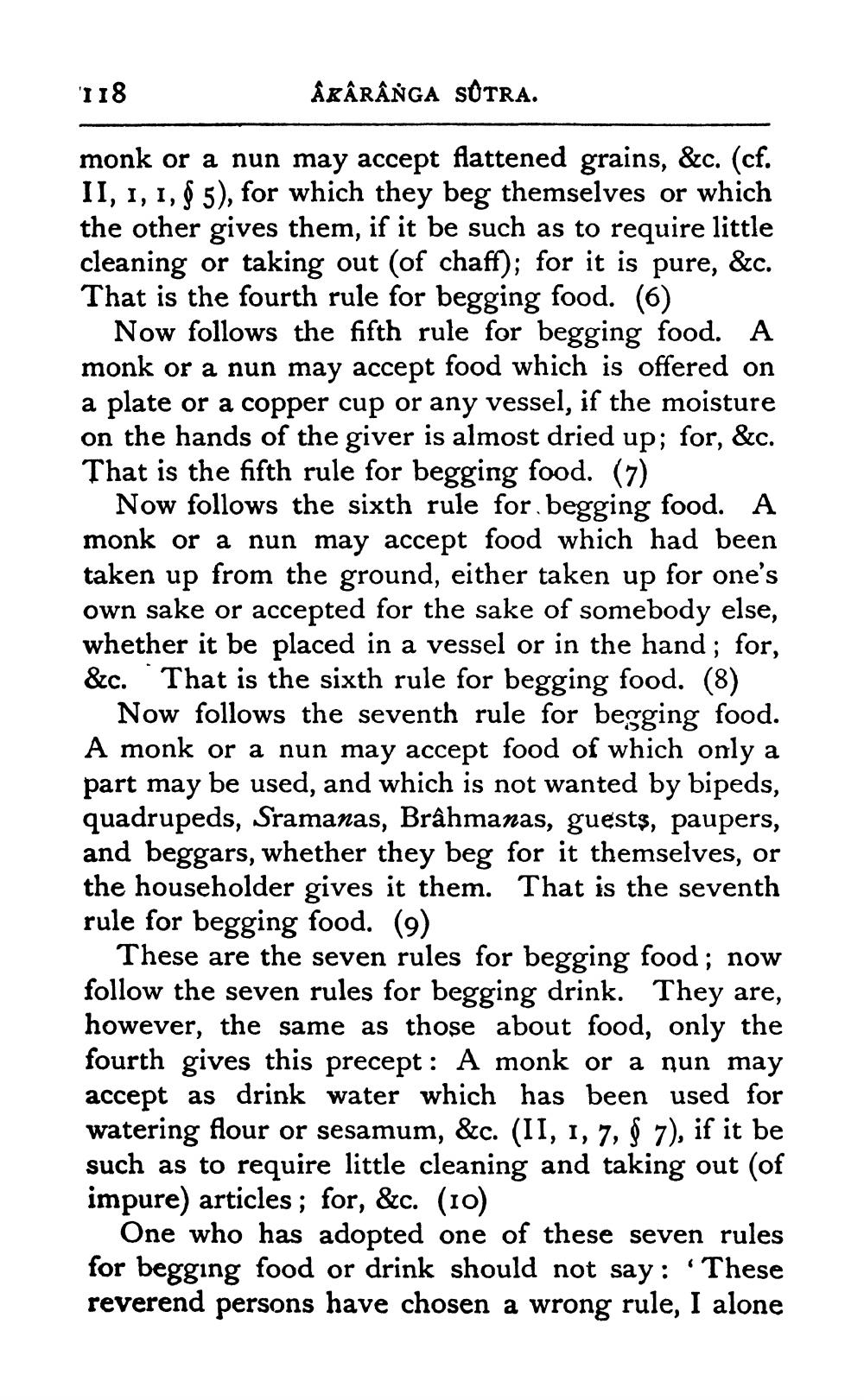________________
'118
ÅKÂRÂNGA SÚTRA.
monk or a nun may accept flattened grains, &c. (cf. II, 1, 1, $ 5), for which they beg themselves or which the other gives them, if it be such as to require little cleaning or taking out (of chaff); for it is pure, &c. That is the fourth rule for begging food. (6)
Now follows the fifth rule for begging food. A monk or a nun may accept food which is offered on a plate or a copper cup or any vessel, if the moisture on the hands of the giver is almost dried up; for, &c. That is the fifth rule for begging food. (7)
Now follows the sixth rule for begging food. A monk or a nun may accept food which had been taken up from the ground, either taken up for one's own sake or accepted for the sake of somebody else, whether it be placed in a vessel or in the hand; for, &c. . That is the sixth rule for begging food. (8)
Now follows the seventh rule for begging food. A monk or a nun may accept food of which only a part may be used, and which is not wanted by bipeds, quadrupeds, Sramanas, Brâhmanas, guests, paupers, and beggars, whether they beg for it themselves, or the householder gives it them. That is the seventh rule for begging food. (9)
These are the seven rules for begging food; now follow the seven rules for begging drink. They are, however, the same as those about food, only the fourth gives this precept: A monk or a nun may accept as drink water which has been used for watering flour or sesamum, &c. (II, 1, 7, § 7), if it be such as to require little cleaning and taking out (of impure) articles; for, &c. (10)
One who has adopted one of these seven rules for begging food or drink should not say: "These reverend persons have chosen a wrong rule, I alone




